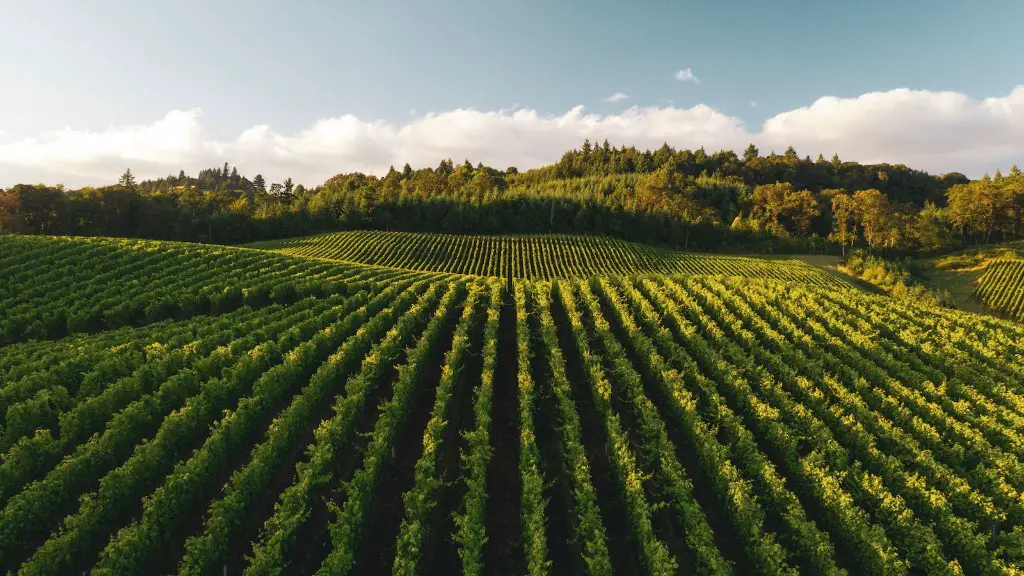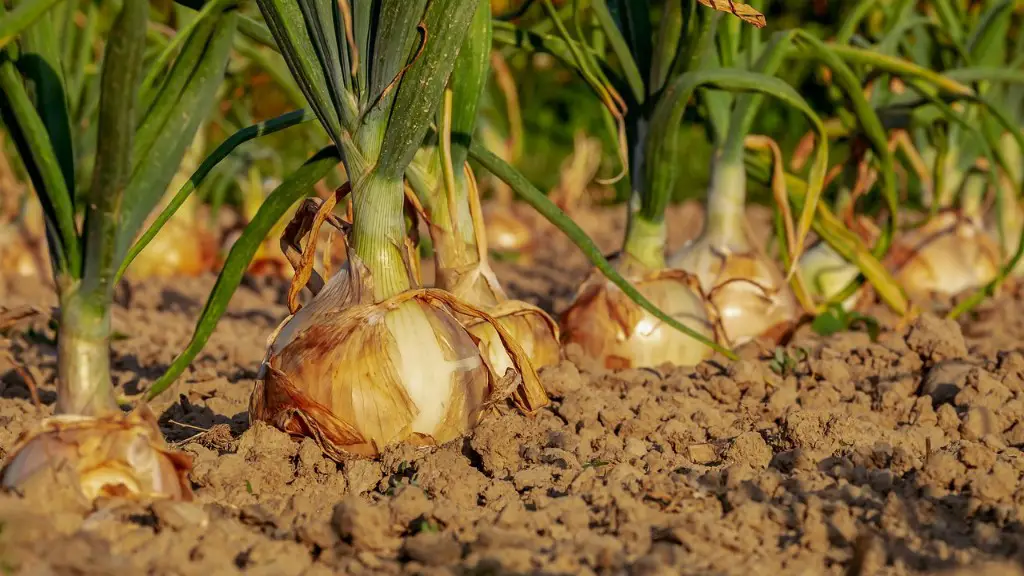The agricultural industry is in decline due to a number of factors, but the primary reason is that young people are not interested in pursuing a career in agriculture. There are a number of reasons for this, but the most significant one is that agriculture is seen as a low-skilled and low-paid profession. In addition, the industry is not perceived to be as glamorous or exciting as other industries, such as the technology sector. As a result, there is a lack of young people entering the agricultural industry, which is having a negative impact on the sector as a whole.
There are a variety of reasons why youth are not interested in agriculture. One reason is that there is a perception that agriculture is a low-status profession. Agriculture is often associated with manual labor, and is therefore not seen as a desirable career option by many young people. Additionally, youth often have limited exposure to the agricultural sector, and so are not aware of the many opportunities that it can provide. As a result, they are not motivated to pursue a career in agriculture. Finally, the agricultural sector can be challenging and uncertain, which can dissuade youth from choosing it as a career path.
Why are younger generations not staying in production agriculture?
There are many reasons why young farmers leave the profession, but one of the primary reasons is high land prices. The USDA reports that farmland inflation rates increased by 150 percent between 2004 and 2018, making it difficult for young farmers to get started in the industry. Schachtsiek believes that the current system is unfair to young farmers and that the land should be owned by the farmers who work it.
The main reason that younger generations are avoiding agriculture and farming is because of a lack of knowledge. Due to this lack of knowledge, it is seen as a poor and bad choice. As youth are unaware of the actual farming, proper knowledge should be given in different ways.
Why do you think people don t like farming
The youth are not attracted to this profession as there is neither guarantee of income nor enough institutions that provide jobs. At present, only a few crops get a Minimum Support Price (MSP) guarantee from the government. The government should take steps to attract more youth to this profession by providing income guarantee and more institutions that provide jobs.
It’s a real shame that young Filipinos are less and less interested in the agriculture industry. Farmers are some of the most important people in our society, and they deserve to be fairly compensated for their hard work. Unfortunately, it seems like the average age for farmers is getting higher and higher, which raises concerns about who will be doing the farming in the future. We need to do everything we can to support our farmers and encourage young people to get involved in agriculture.
What are the factors that hinder youth to go to farming?
Youths in developing countries suffer from a lack of opportunities to find gainful employment. Many are forced to rely on subsistence agriculture or other low-paying jobs. This can lead to a vicious cycle of poverty and unemployment. To break out of this cycle, youths need access to capital and support to establish viable and sustainable businesses. However, these resources are often lacking. As a result, many youths are unable to escape poverty and unemployment.
It is clear that many farmers are unhappy with their profession, owing to the low profits, high risk, and lack of social status. However, they continue with it as they lack opportunities outside agriculture. This highlights the need for government intervention to provide farmers with alternative livelihood options. Additionally, it is important to create awareness among farmers about the risks and challenges involved in farming, so that they can make informed decisions about whether or not to continue with it.
What are 3 problems of agriculture?
Setting the table to address the triple challenge means creating a plan that addresses all three issues together. This can be done by increasing food production, improving farmers’ livelihoods, and protecting the environment. This approach is necessary in order to make sustainable progress on all three fronts.
There are two major problems in agriculture: the loss of agricultural land and the decrease in the varieties of crops and livestock produced.
The loss of agricultural land is a major problem because it means that there is less land available to grow crops and rear livestock. This problem is compounded by the fact that the average size of farms is increasing, which means that fewer farms are able to produce the same amount of food.
The decrease in the varieties of crops and livestock produced is also a major problem. This is because it leads to a loss of genetic diversity, which makes crops and livestock more susceptible to diseases and pests. It also means that there is less food available, which can lead to hunger and malnutrition.
How do you motivate youth to participate in agriculture
There are many ways to encourage youths to engage in agriculture, one of which is to increase productivity by providing access to finance. This way, youths can see the potential for successful agricultural ventures, and be empowered to get involved in policy dialogue and other aspects of the agricultural industry. Additionally, education is key to youth empowerment, and using technology can help transform agriculture to make it more accessible and productive.
The large-scale, conventional farming system is not sustainable in the long term. It contributes to climate change, pollutes air and water, and depletes soil fertility. The system is also dependent on fossil fuels, pesticides, antibiotics, and synthetic fertilizers, which can have negative impacts on human health and the environment.
What are the common problems that rural youth facing?
There are many problems that have been identified in rural areas through literature review. Some of these problems include poverty, illiteracy, unemployment, homelessness, crime, and social evils. Lower living standards are also common in rural areas, as are lack of facilities, services, and health. All of these problems can have a negative impact on the lives of those living in rural areas.
There are a few significant obstacles that prevent the participation of youths in community development. One is a lack of communication and awareness of opportunities. Another is weak cooperation among organizations competing for youth participants. youths’ fears of speaking out, lack of diversity, and systematic mistreatment of youth are also obstacles.
What is the role of youths in agriculture
Agricultural production, capacity building, goods and services, logistics and value addition are all important aspects of the agri-food sector. Youth involvement in these areas is essential in order to ensure the sector’s long-term sustainability.
As farmers, youth bring energy, new ideas and a fresh perspective to agriculture. They are also well-positioned to adopt new technologies and practices, and to help disseminate information about best practices throughout the sector.
In addition, youth can play a key role in supporting agri-food businesses as service providers and entrepreneurs. Their skills and knowledge can help businesses to be more efficient and effective, and to add value to their products and services.
Finally, youth involvement in the agri-food sector can help to ensure that the sector remains vibrant and dynamic. Their participation can bring new energy and creativity to the sector, and help to ensure that it remains an important part of the economy.
There are many reasons to relocate to Canada today! Canada is a modern, developed country with plenty of opportunities for those looking to start fresh. Additionally, Canada boasts a high quality of life, with plenty of social amenities and access to land and resources. Finally, Canada is a safe place to live, with a low crime rate and plenty of natural beauty. If you’re looking for a new place to call home, Canada is an excellent choice.
What are 3 challenges facing agriculture in the future?
Farmers and livestock producers are facing uncertain times ahead with three major issues on the horizon: agricultural trade, tax reform and the new farm bill. While it is unclear how these issues will ultimately shake out, farmers and producers need to be prepared for the potential impacts on their businesses.
Development and sustainability goals should be placed in the context of current social and economic inequities and political uncertainties about war and conflicts. While there are many uncertainties about the future, it is important to consider how these factors will impact the ability to sustainably produce and access sufficient food. Additionally, world food prices are likely to continue to rise, making it even more difficult for people living in poverty to access adequate nutrition.
Conclusion
There are a few reasons why youth may not be interested in agriculture. They may feel that it is a difficult or tedious field to work in. They may also believe that there are not many job opportunities available in agriculture. Additionally, they may not know much about the field and what it entails.
The reason youth are not interested in agriculture is because they perceive it to be a low-paying, unskilled industry with little opportunity for career growth. In addition, farming is often seen as a risky business venture due to the volatile nature of crop prices and the potential for natural disasters. Lastly, the physical labor involved in agriculture can be viewed as challenging and unappealing. Consequently, the agricultural industry will continue to face a challenge in attracting young people to enter the field.




